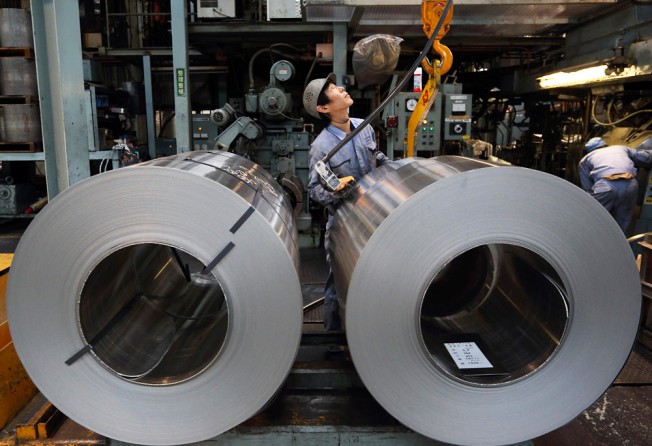
Lower economic growth and record deficit in Japan pressure Abenomics

Japan's economy expanded less than estimated in the fourth quarter and the current-account deficit widened to a record in January, highlighting risks to Abenomics as an increase in sales tax looms.

While growth is set to surge this quarter before the bump in the sales levy next month, a sentiment survey highlighted expectations for a sharp pullback when businesses and consumers face the higher burden.
Prime Minister Shinzo Abe is due to detail growth measures in June to sustain momentum, while economists forecast the Bank of Japan will add to unprecedented easing to keep the economy on track for a 2 per cent inflation target.
"Capital spending remains weak and exports are not coming back to strengthen the recovery, and without support in these areas, Japan's economy is going to contract significantly in the second quarter," said Yoshimasa Maruyama, chief economist at Itochu. "The negative effect from the rise in sales tax could be worse than the BOJ and the government expect."
Business investment rose 0.8 per cent from the previous quarter, revised down from a preliminary 1.3 per cent increase, yesterday's data showed. Consumer spending climbed 0.4 per cent, less than an initial estimate of a 0.5 per cent gain. Abe jump-started the economy last year with reflationary policies dubbed Abenomics.
Record easing by the BOJ helped to push the yen down 18 per cent against the US dollar last year, boosting corporate profits and fuelling economic growth.
The government in December approved a 5.5 trillion yen extra budget to offset the higher sales levy, which will rise to 8 per cent next month from 5 per cent. Companies and consumers have rushed to make purchases, with industrial production gaining the most in January since June 2011 and retail sales growing at the fastest pace since April 2012.